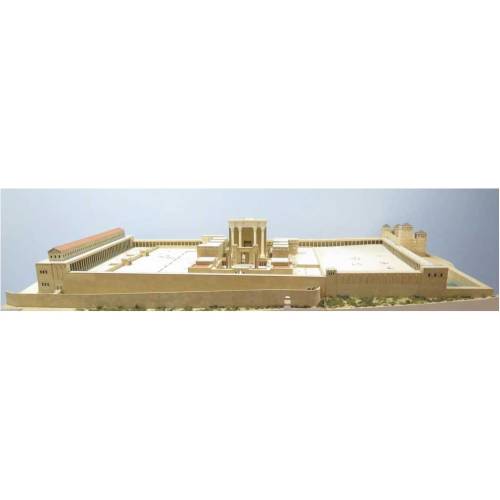#tisha bav
After the destruction of the Second Temple on Tisha Ba’av in 70 CE, the ancient sage, Rabbi Yosie, began to travel the countryside of his fallen nation. We do not know where he was headed. We do not know what he was searching for. All we know is what happened to him when he returned to Jerusalem and came face-to-face with his shattered world. R. Yosie recounts his tale as follows:
I was treading a path, then came to the rubble of Jerusalem. Into one of its ruins I entered, and there I prayed. An apparition of Elijah (may his memory be for the Good) followed me in. He stood at the threshold and guarded me, lingering at the opening until I had finished my prayer. My prayer completed, Elijah greeted me, saying: “Peace be upon you, Rabbi.”
I responded, “Peace upon you, Rabbi, Teacher.”
Elijah asked, “Why have you entered into this ruin?”
I answered, “To pray.”
Said Elijah, “You should have prayed on the path…”
At which moment I realized: One must not enter into a ruin…to pray.
BT Berachos 3a
I was trying to learn Eicha trope (cantillation for the book of Lamentations, which we read on Tisha B’av), not because I will practically use it, but because it is interesting, and I stumbled across this recording of the prayer Eli Tziyon.
Now, this prayer is a kinnah, one of the poetic expressions of mourning we read. This specific kinnah is usually the last one that we read. One would expect that the tune of such a prayer would be, I don’t know, sad? For example, an inappropriate emotion to get after listening to a song whose refrain is “Wail, Zion and her cities, as a woman in her birthing pains, as a maiden donned in sackcloth for the husband of her youth,” would be “Wow, I really feel inspired to march out to war now,” right? Right?
So then why does this kinnah sound more like a marching song than a mourning one? Why? Look, I would understand if this prayer was “עלה ציון,” or “alei tziyon,” rise up, Tzion, but it isn’t! It just isn’t! The title of the song is “אלי ציון”, “eli tziyon,” wail, Tzion, and no amount of singing this song as if it is a chant meant to inspire you for war will change that!
And I’ll admit. As the grandchild of someone who sometimes angrily listens to “more mEANINGFUL versions” of Eli Tziyon, maybe I’m not one to talk. Maybe that’s just how congregations sing it, and there’s not much I can do, and I shouldn’t be getting this angry over one poem. But I am getting this angry. And so I decided to share it with all of you. You’re welcome.
For more information about the meaning of Tisha B’av, I find this resource helpful. For more about this specific kinnah, try here. For those who will be fasting, here is an easy way to find times for your area, though of course asking a rabbi is preferable. And for everyone, have a meaningful Tisha B’av!
Collection item of the week: Herod’s Temple Mount in Jerusalem. York Model Making and Display Ltd. Created for Benjamin Adelman; Leen Rittmeyer consultant, Gift of Saul Adelman
Post link
My wife’s friend just witnessed the following on the bus today:
Two strangers were having a big argument and started yelling at each other. At one point in the middle of their shouting one of them shouts: “YOU DON’T KNOW WHO YOU’RE FIGHTING WITH!!”
Man 2 *sarcastically*: “So who am I fighting with?!”
Man 1: “I am the son of the King!”
Man 2: “Son of the king? Well, so am I!”
Man 1: “Oh really? Is that so? You are not behaving like one.”
Man 2: “Well, you aren’t either!”
Man 1: “…”
Man 2: “…”
Man 1: “You are right! You’re right.”
Man 2: “So let’s give each other a hug, sit down next each other and talk.”
*Both of the formerly arguing men hug, sit down and talk nicely for the duration of the busride*
Mi K’Amcho Yisroel!


